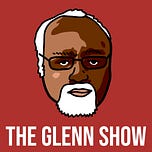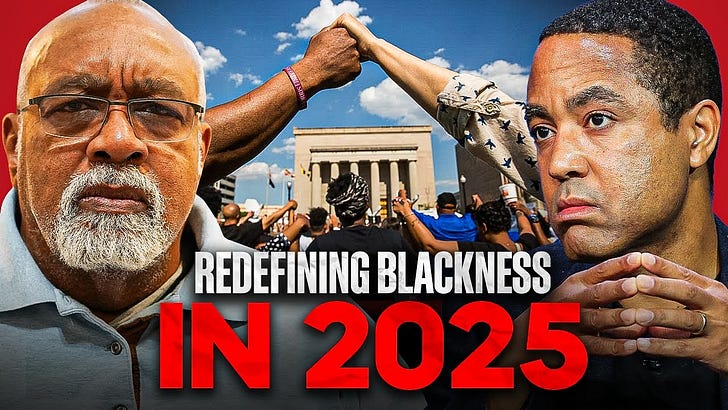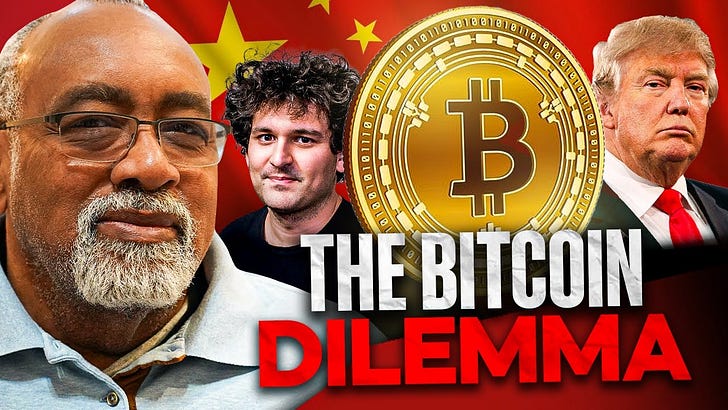My guest this week is the political scientist and wildly prolific author Norman Finkelstein. If you know Norman’s work and history, you’ll know that some view him as a controversial figure. His criticisms of Israel’s treatment of the Palestinians, the cultural legacy of the Holocaust, the Democratic Party, and any number of other hot-button topics have made him virtually persona non grata in mainstream circles. I’ve even received emails from viewers asking me not to post this conversation, despite the fact that, until now, no one except Norman, me, and my team knew what was said in it. Perhaps you think his ideas are so toxic that he should be silenced. Clearly, I don’t think he should be.
Trying to capture this expansive conversation in a neat summary is impossible. Norman doesn’t hold back, and we range from his public disputes with Alan Dershowitz, personal heroes of his like Paul Robeson and Noam Chomsky, the shallowness of progressive wokeness, and the comparative merits of past Democratic presidents. Norman identifies as a communist (with a small-C), and so I expected we would have some fairly sharp disagreements. No doubt we do when it comes to economic matters. But I was surprised how often I found myself nodding in agreement with his sharp-tongued critiques. What can it mean that this perhaps idiosyncratic but doubtlessly committed man of the left and I agree on so much?
I expect you’ll all have a lot to say about this one. I await your comments with bated breath!
This is a clip from the episode that went out to paying subscribers on Monday. To get access to the full episode, as well as an ad-free podcast feed, Q&As, and other exclusive content and benefits, click below.
Featured Content from the Manhattan Institute
Carolyn Gorman on how to build a mental-health system that saves people like Jordan Neely.
0:00 Has Norman been shut out of mainstream political debates?
7:54 Norman’s conflict with Alan Dershowitz
16:50 Is Israel an apartheid state?
19:25 Identifying with Paul Robeson
33:08 Norman’s new book, I’ll Burn That Bridge When I Get to It!
44:42 Norman: Wokeness is a “triple scam”
53:28 What’s become of Angela Davis?
1:00:05 Cornel West's chosen path
1:09:01 Obama’s self-proclaimed “neat trick”
1:24:38 The political intelligence of Carter, Clinton, and Obama
1:38:10 South Carolina 2020: a case study in identity politics
1:47:24 Would Bernie have won in 2016?
Recorded April 19, 2023
Links and Readings
Norman’s new book, I’ll Burn That Bridge When I Get to It!: Heretical Thoughts on Identity Politics, Cancel Culture, and Academic Freedom
Norman’s book, The Holocaust Industry: Reflections on the Exploitation of Jewish Suffering
Norman’s book, Beyond Chutzpah: On the Misuse of Anti-Semitism and the Abuse of History
Norman’s book, Gaza: An Inquest into Its Martyrdom
Norman’s book, A Nation on Trial: The Goldhagen Thesis and Historical Truth
Norman’s book, What Ghandi Says: On Nonviolence, Resistance, and Courage
Norman’s book, “This Time We Went Too Far”: Truth and Consequences on the Gaza Invasion
Norman’s book, Knowing Too Much: Why the American Jewish Romance with Israel is Coming to an End
Norman’s book, The Rise and Fall of Palestine: A Personal Account of the Intifada Years
Joan Peters’s book, From Time Immemorial: The Origins of the Arab-Jewish Conflict over Palestine
Alan Dershowitz’s book, The Case for Israel
Alan Dershowitz and Norman’s debate on Democracy Now
Michael Barnett, Nathan Brown, Marc Lynch, and Shibley Telhami’s Foreign Affairs piece, “Israel’s One-State Reality”
Paul Robeson singing “The Four Insurgent Generals”
The Letters of Rosa Luxembourg
Mark Doss performing “Ol’ Man River”
Paul Robeson’s autobiography, Here I Stand
W.E.B. Du Bois’s book, The Philadelphia Negro
W.E.B. DuBois’s book, Black Reconstruction in America, 1860-1880
Tom Wolfe’s New York Magazine essay, “Radical Chic: That Party at Lenny’s”
Angela Davis’s 2022 appearance at the University of South Carolina
Barack Obama’s memoir, A Promised Land
Bill Clinton’s memoir, My Life
Jimmy Carter’s memoir, Keeping Faith
David Axelrod’s memoir, Believer: My Forty Years in Politics
Frederick Douglass’s third autobiography, Life and Times of Frederick Douglass














Share this post